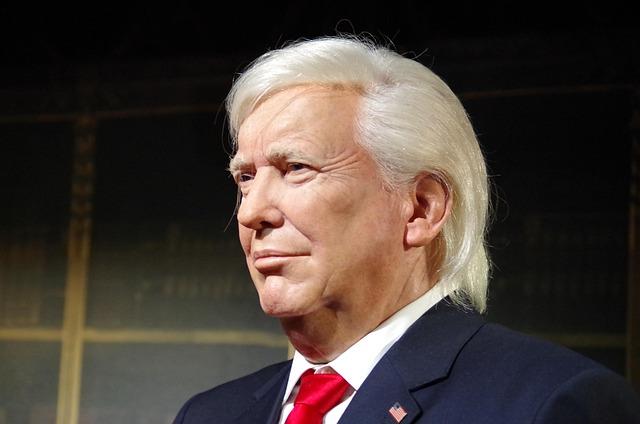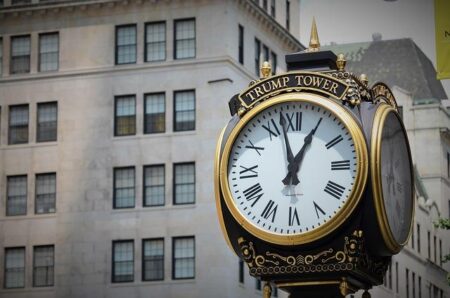Former President Donald Trump has called for renewed negotiations between Russia and Ukraine, proposing an updated peace plan aimed at resolving the ongoing conflict. In a move that has drawn attention from international observers and political analysts alike, Trump urged both sides to engage in direct talks, emphasizing the need for diplomatic solutions amidst escalating tensions. This latest development comes as global leaders continue to grapple with the complex dynamics of the war and its far-reaching implications.
Trump Initiates Diplomatic Effort to Revise Peace Strategy in Russia-Ukraine Conflict
In a bold move to recalibrate the dynamics of the Russia-Ukraine conflict, former President Donald Trump has ordered an intensive series of talks aimed at redefining the existing peace framework. This initiative signals a significant shift towards direct diplomatic engagement, emphasizing alternative pathways to conflict resolution that diverge from current international efforts. Sources close to the negotiations reveal that the focus will center on fostering pragmatic compromises, ensuring territorial sovereignty, and addressing security concerns for both nations without exacerbating tensions.
Key elements under discussion include:
- Ceasefire guarantees monitored by neutral international bodies
- Mutual economic cooperation zones to bolster regional stability
- Humanitarian corridors to facilitate aid and civilian evacuations
- Revision of sanctions contingent on compliance
| Diplomatic Aspect | Current Status | Proposed Adjustment |
|---|---|---|
| Ceasefire Enforcement | Partial and intermittent | Permanent, monitored by UN observers |
| Economic Sanctions | Broad and escalating | Targeted, tied to compliance milestones |
| Territorial Sovereignty | Contentious with disputed claims | Mutual recognition with negotiation framework |
Key Challenges and Opportunities in Negotiating New Terms Between Moscow and Kyiv
Negotiators face a complex landscape marked by entrenched mistrust and diverging national interests. For Moscow, maintaining strategic influence in the region and securing recognition of its territorial claims remains a non-negotiable priority. Meanwhile, Kyiv insists on full restoration of sovereignty and protection of its borders without compromising territorial integrity. These conflicting stances complicate efforts to find common ground, particularly as both sides grapple with domestic political pressures and international scrutiny. Additionally, the presence of external actors and economic sanctions further strains negotiations, limiting flexibility and increasing the stakes involved in each concession.
However, amid these challenges lie unprecedented opportunities for dialogue and progress. The renewed focus on peace talks opens avenues to address humanitarian concerns, facilitate prisoner exchanges, and establish ceasefire mechanisms that could foster trust. Key factors enhancing optimism include:
- International mediation offering neutral ground for discussion.
- Economic incentives tied to sanctions relief and reconstruction aid.
- Shared interests in regional stability and economic recovery.
| Challenge | Opportunity | Impact |
|---|---|---|
| Territorial disputes | Confidence-building measures | Reduced hostilities |
| Sanctions and economic pressure | Conditional incentives | Motivation for compromise |
| Domestic political opposition | Public diplomacy campaigns | Improved public support |
Experts Recommend Enhanced Multilateral Engagement and Security Guarantees for Lasting Resolution
Amid ongoing tensions, experts emphasize that a sustainable peace in the region hinges on robust multilateral engagement supported by concrete security guarantees. Analysts argue that involving a broad coalition of international actors, including NATO members, the OSCE, and neutral states, would create a more resilient framework for negotiations. They warn that unilateral agreements, without comprehensive backing, risk collapse due to underlying mistrust and unresolved geopolitical concerns.
Key recommendations from security specialists include:
- Establishing a verified ceasefire monitored by impartial international observers
- Formalizing security guarantees that prevent further territorial incursions
- Launching joint economic and humanitarian initiatives to rebuild war-torn communities
- Ensuring clear timelines for demilitarization and troop withdrawals
| Aspect | Current Status | Recommended Action |
|---|---|---|
| International Monitoring | Limited and fragmented | Unified, objective observation missions |
| Security Guarantees | Informal and disputed | Legally binding agreements |
| Economic Assistance | Insufficient coordination | Targeted reconstruction funding |
Insights and Conclusions
As negotiations move forward, all eyes remain on the evolving dynamics between the United States, Russia, and Ukraine. President Trump’s directive to initiate discussions signals a potential shift in diplomatic efforts aimed at resolving the ongoing conflict. While details of the updated peace plan are still emerging, the coming weeks will be critical in assessing whether these talks can pave the way for a lasting resolution. USA Today will continue to monitor developments and provide timely updates on this pivotal international issue.




